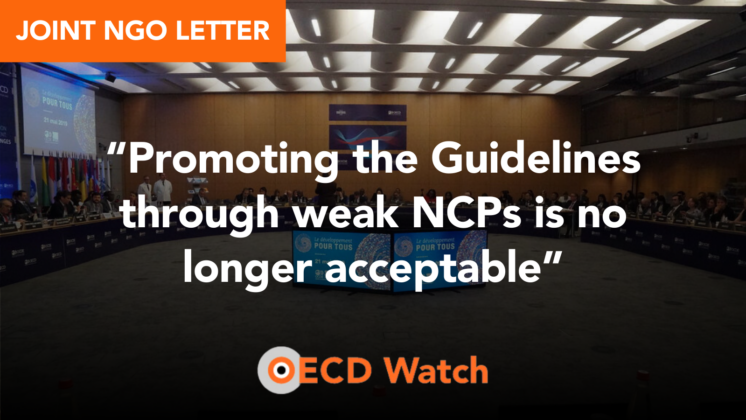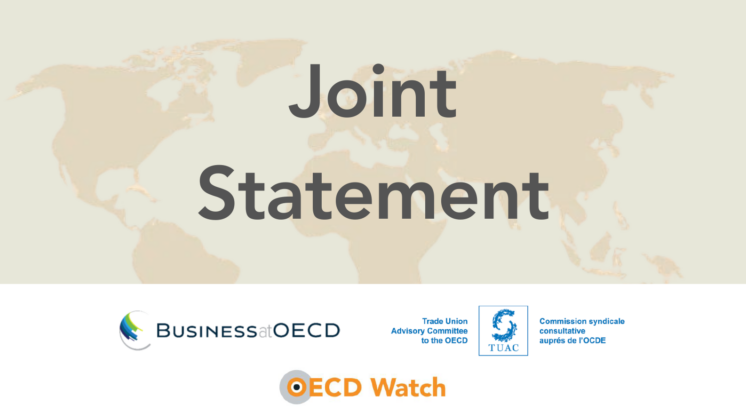TUAC and OECD Watch have today started a 40-day count-up to mark the 40th anniversary of the OECD Guidelines for Multinational Enterprises and are calling on governments and the OECD to step up measures to ensure businesses respect the Guidelines, so that the Guidelines fulfil their potential to defend communities’ and workers’ rights.
The Guidelines, the OECD’s flagship instrument on responsible business conduct, were first signed by 24 OECD member countries on 21 June 1976. Today, the number of signatories has almost doubled to 46, including 12 non-OECD countries. Under binding rules, these governments are required to establish National Contacts Points (NCPs) to promote the Guidelines and handle cases of violations of the Guidelines submitted by trade unions and NGOs.
As the major international grievance mechanism for workers and communities to defend their rights, NCPs have a unique responsibility to carry out their role effectively. Yet all too many NCPs are failing to meet their obligations.
“NCPs are failing in their mandate. Governments need to step it up if NCPs are to provide victims with remedies for harms from corporate abuses and to bring about changes in corporate behaviour”, said Dr. Joseph Wilde-Ramsing, Coordinator of OECD Watch.
In 2015, NCP performance came under political scrutiny with G7 Leaders and OECD Ministers promising to strengthen NCP performance as part of commitments made to support responsible business conduct, including in global supply chains.
“This is a period of unprecedented political significance for the Guidelines and a unique opportunity to strengthen the effectiveness of the OECD Guidelines, which governments and the OECD should not waste”, said John Evans, TUAC General Secretary.
TUAC and OECD Watch are calling on governments to take immediate action to strengthen their NCPs, including by introducing consequences – sanctions such as withdrawing export credits or other forms of public support – for companies that refuse to participate in the NCP process. They are also calling on the OECD to revise the rules governing the functioning of NCPs to increase effectiveness and ensure a level playing field.














